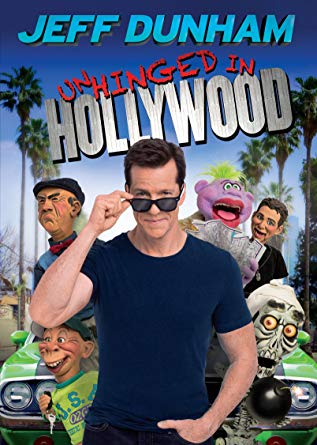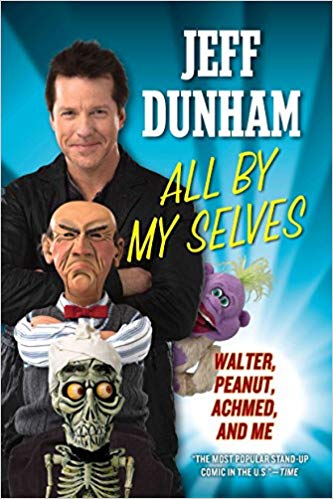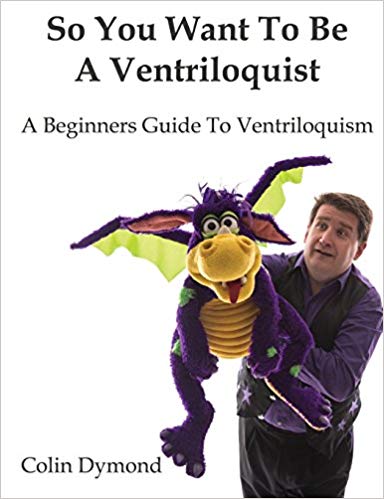
Puppet Voices – Changing Your Voice For Ventriloquism
Almost every day I receive an email with questions about how to give a puppet a voice:
I need help trying to find a voice for my puppet. What should I do?
Do you have any tips on how to change my voice quickly when talking with my puppet?
How can I create more contrast with my puppet’s voice?

Ventriloquism (and puppetry) are not instant gratification arts.
So don’t worry. You will get there! And this article will try to help.

Vocal Differences
When you listen to two people talk, naturally they sound different.
- One person may be louder than the other.
- One may have a deeper or higher voice.
- One may have a certain tone to their voice.
- One might have an accent.
- One may have a more expressive voice.
- One might talk faster than the other.
It is important you start listening for these differences. Those contrasts will help you as you begin to create puppet voices.
Here is an exercise:
Below is a video of the comedy team Abbott & Costello. Start the video, then close your eyes and listen to the voices.
Abbott was talking fast, higher and got more upset as the conversation went. Costello was the smooth con man with a deep, rich voice.
Now let’s try it with ventriloquist David Strassman. One person doing multiple voices. There are some visual gags in the clip, but watch it with your eyes closed the first time. Start the video, close your eyes and listen.
(Okay, now you can go back and watch the manipulation if you want …)
We did this to understand that people have different levels, sounds and tempos to their speech patterns.
And it is possible for one person to create the same vocal contrast.
When using this concept with your puppet voice, you can differentiate it from your own. That is important to ventriloquism. You must create the illusion two people are talking.
DO NOT STRAIN YOUR THROAT.
If it is uncomfortable, stop and rest!
Character Voices
How To Give A Voice To Your Puppet.
That doesn’t mean to yell or scream. Those volumes become very unpleasant to an audience.
You want to project your voice and use more force with the puppet’s voice. This contrast can be helped by lowering the speaking volume of your regular voice during performance.
It will also make the puppet easier to understand.
Changing Your Voice For A Puppet
You don’t have to be a singer, but we will use our voices in a similar fashion.
Start with your voice at your normal speaking level. Then we will begin to step up the musical scales:
Do Re Me Fa So La Ti Do

Most beginners find their tonal range is comfortable somewhere between Me and La.
Once you find a level that is comfortable, it should become your puppet’s speech level.
Later on, you can use this technique to develop different voices at different levels. Don’t worry about that yet! Work on one puppet voice at a time.
Hear It Like Your Audience
(V = ventriloquist P = puppet)
 V – How are you today.
V – How are you today.
P – Does it sound different than your regular voice?
V – That is why I’m recording this.
P – You should record all of your practices.
V – I know, why don’t you start naming objects in the room. Then I will.
(Go back and forth naming some things – then listen to the recording.)
How does it sound?
Different? Somewhat different?
Close your eyes and listen like with the videos above. Could you imagine two people are talking?
If so, congratulations! You’ve created your first puppet voice.
If not – no problem. Let’s add some things!!!

Fine Tuning Your Puppet Voices
Remember when I said this stuff takes practice?
You can use a southern hick/redneck accent. A French, Italian, Spanish, English, German, Irish, Scottish or other type of accent. There are a lot of possibilities.
Don’t know how to do an accent?
No problem, that is why YouTube was created.
(Not really, but it works for that!)
You can also change the voice to Nasal. Or pressurize it to create a falsetto voice. Maybe add in a lot of breath to make it airy sounding.
What about a lisp? Or a raspy sound?
Play with these and see what type of voice you can create.

The Voice Before The Puppet …
Many times people will buy a puppet and can’t decide on a voice for it. They struggle because the puppet’s look seems to determine the vocal style.
A voice they might not be able to do.
Not every puppet is right for every person.
I’ve recommended in the past, people develop a Character Profile before buying a puppet.
When you know the background of the character, you have a deeper understanding of the personality. This helps you create a puppet voice that matches.
Once you have a voice and know what the character is, you can now find a puppet that matches your needs.
It will save you a lot of money in the long run.
Finding a puppet voice should be fun!
So you have my permission to watch TV as your homework.
Study the old cartoon voices. See if you can duplicate any of them.
You don’t want to copy directly, but you may find some ideas that will allow you to create something truly unique!
Then practice.
Maybe as you are reading. Read one line aloud in your voice, the next in the puppet’s voice.
I recommend you do that alone. Otherwise you may get committed.
Switching back and forth between voices is easy – with plenty of practice.
If you follow these guidelines, you will be able to create different puppet voices for your characters.
I hope you found this tutorial helpful. If you’d like more information on creating puppet/character voices, check out these options:




 Think of knowledge as a water hose. Drink from it often and your thirst will be quenched. Only drink enough that your throat is wet and you will find out you begin to get parched again.
Think of knowledge as a water hose. Drink from it often and your thirst will be quenched. Only drink enough that your throat is wet and you will find out you begin to get parched again. When Lester was alive, video and audio were not really options. Today there are DVD’s and online courses available. Again, I recommend them all and will try to list them later.
When Lester was alive, video and audio were not really options. Today there are DVD’s and online courses available. Again, I recommend them all and will try to list them later.










Recent Comments